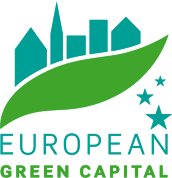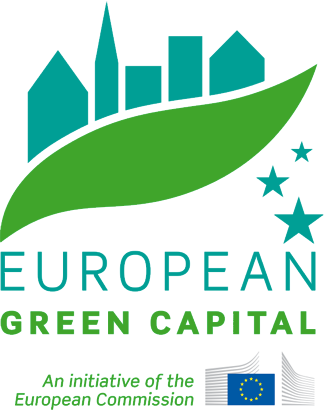Bristol Business Summit – the place for change
Business and civic leaders gathered at the Passenger Shed on Thursday 22 October for the Bristol 2015 European Green Capital Business Summit.
See our Twitter summary for a round-up of comments and reactions.
The Summit focused on the challenges, as well as the huge opportunities, of an era where the world is changing faster than ever before – from climate change to changing markets, from limited resources to massive urban growth.
Ignoring our responsibilities was not an option, as vividly highlighted by Dr Eddie O’Connor, who gave the first address of the day and is recognised as a world leader in the renewable energy industry.
Inaction, he said, would guarantee that “we humans face catastrophic and irreversible climate change.”
Dr O’Connor, CEO of Mainstream Renewable Power, described himself as a former “sinner – a big one”, in reference to a career that included being the boss of an organisation extracting turf from Ireland’s peatlands for burning in power stations.
Then he “saw the light” and became one of the pioneers in the development of wind and solar energy.
He said: “I like being part of the future, being ahead of the curve and making good profits for doing what is right.
“The transition from a high to a low carbon economy requires the biggest-ever investment in infrastructure, in the way we manufacture, distribute and consume.
It is not just an unprecedented challenge; it is also an unparalleled business opportunity for those of you with vision, foresight and courage.”
Dr O’Connor said that the United Nations Climate Change Conference in Paris (COP21) would augment and universalise the momentum towards a zero carbon economy.
“And it’s virtually certain the solution will be putting a price on carbon, a proper price that internalises all its social costs.”
“I say – ‘Let the polluter pay’.”
In cities, he added, zero energy buildings must become the norm and even become net producers of energy.
“Think of the potential of photovoltaic roof tiles that turn solar radiation into electric, that would then power everything within the building while heating it and cooling it – and all done in real time with smart appliances and smart grids.
“In short, we are moving towards the era of complete interconnected renewable systems, in energy and manufacturing – an era where we redesign everything we do and the way we live.
“Probably the most exciting aspect of this vision is the city of the future, in which everything is connected to everything else through the internet – the ‘internet of things’ as it is called.”
The Summit heard examples from executives of international businesses about how they are tackling sustainability issues.
Richard Gillies, Group Sustainability Director of Kingfisher plc, which owns of B&Q, talked about the retailer’s commitment to reducing its carbon footprint and their introduction of an environmentally-friendly production method for a cleaner product that grows better plants, creates less waste, and is easier to dispose of than traditional peat.
Richard suggested that increasingly customers would recognise businesses that are seen to be “doing the right thing”.
Often, however, a significant challenge for many organisations was finding someone to present the initial business case for change.
“But once sustainability is firmly embedded and colleagues have been encouraged to go on the journey, it actually gets quite exciting and interesting.”
Jon Dee, host of Sky News Business Channel’s ‘Smart Money’ programme, explained how in his home country of Australia, McDonalds had switched from regularly-failing fluorescent tubes to LED lighting for their famous golden arches logo.
“This change in the most famous corporate symbol in the world has saved 60 to 70 per cent in energy use, plus big savings in maintenance.”
He said it was clear that many businesses still waste vast amounts of money by ignoring “no-brainer” ways of reducing energy bills through failing to follow steps that “are easy to do and which have a great rate of return.”
In his own business in Australia, solar-powered panels on the roof had been linked to solar batteries.
“Now, any electricity we don’t use isn’t directed into the grid – it goes into the batteries within the office and means that, when the sun goes down, we are still powered by solar power.
“During the busiest and most expensive time for energy consumption in the evening we are literally taking the entire business off the grid. We don’t pay a single cent.”
Following heavy investment into renewables, IKEA is now targeting 2020 as the year the company will self-generate power used in all its stores.
“Already,” explained Joanna Yarrow, Head of Sustainability, “we have 700,000 solar panels on roofs, 314 wind turbines around the world and, in the UK, provide 52% of our energy needs.
“We do it for basic business reasons, insulating ourselves against price rises and unpredictability of the future – and actually we also make money by doing it.”
At the end of the Summit, George Ferguson, Mayor of Bristol, declared that he had been “inspired” by the whole process.
“The message we got from the Youth Summit, at the start of Bristol’s European Green Capital year, was that young people want businesses to engage in their futures.
And absolutely everything we have talked about today has been of relevance in that respect.”
Being European Green Capital, he said, has been a brilliant example of collaboration, in the way it has brought together 800 organisations from all sectors, proving how partnership working across the city “is a really important part of selling the way we implement the values we espouse.
“I think the fact we are incredibly challenged means that we must be more entrepreneurial in our thinking – here, for example, we are already developing our own energy company, connecting waste to energy.
“We have to grab the opportunities which – in turn – means looking for very different ways of running and financing a city.”




